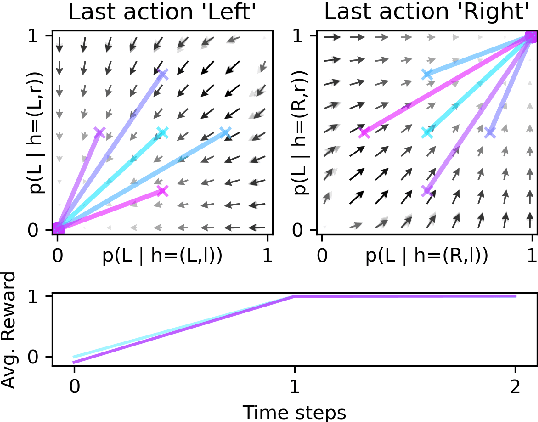Evolutionary Reinforcement Learning Dynamics with Irreducible Environmental Uncertainty
Paper and Code
Sep 15, 2021



In this work we derive and present evolutionary reinforcement learning dynamics in which the agents are irreducibly uncertain about the current state of the environment. We evaluate the dynamics across different classes of partially observable agent-environment systems and find that irreducible environmental uncertainty can lead to better learning outcomes faster, stabilize the learning process and overcome social dilemmas. However, as expected, we do also find that partial observability may cause worse learning outcomes, for example, in the form of a catastrophic limit cycle. Compared to fully observant agents, learning with irreducible environmental uncertainty often requires more exploration and less weight on future rewards to obtain the best learning outcomes. Furthermore, we find a range of dynamical effects induced by partial observability, e.g., a critical slowing down of the learning processes between reward regimes and the separation of the learning dynamics into fast and slow directions. The presented dynamics are a practical tool for researchers in biology, social science and machine learning to systematically investigate the evolutionary effects of environmental uncertainty.
 Add to Chrome
Add to Chrome Add to Firefox
Add to Firefox Add to Edge
Add to Edge